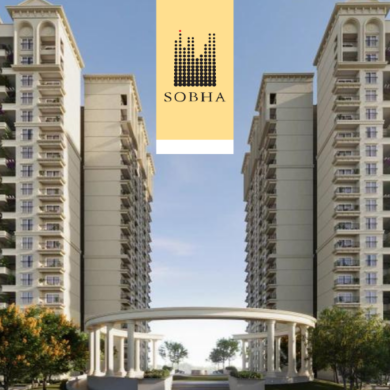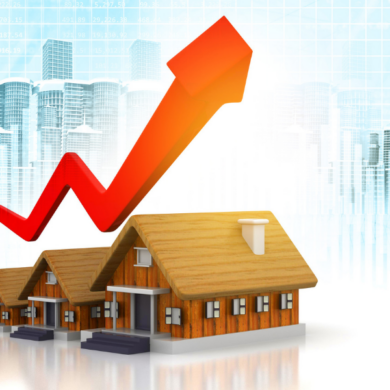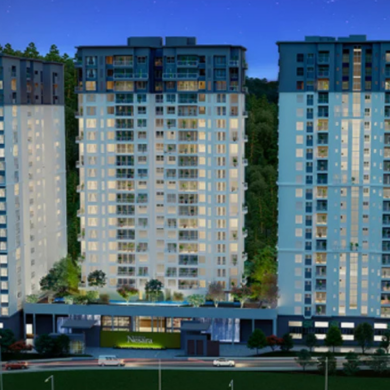30 Questions to Ask the Developers when Buying an Apartment in India
June 2nd, 2024

When buying an apartment in India, it is important to engage with developers and ask the right questions to ensure that your investment is safe. Your inquiries should include questions about the property’s legal status, developer’s track record, specifics of the construction, expected completion date, materials being used, and more.
The real estate market in India is undergoing a significant boom, driven by rapid urbanisation and an increasing demand for residential properties. As cities expand and the workforce grows, more people are looking to invest in apartments that serve not only as homes but also as growing assets. However, navigating this growing property market can be daunting. Homebuyers often face challenges with transparency, legal complexities, and the reliability of the construction.
Given these issues, apartment buyers must engage actively with developers before finalising the purchase. This proactive approach ensures that they are well-informed about crucial aspects such as the property’s legality, the developer’s reputation, and the quality of the construction – leading to a more secure and satisfactory investment. Thus, understanding what to ask developers becomes an indispensable part of the apartment-buying process in India.
Table of Contents
30 Vital Questions to Ask the Developer When Buying an Apartment
When you are about to purchase an apartment, every detail counts. It is not just about finding the right space; it is about ensuring it stands on solid legal and structural ground. Knowing the right questions to ask is not merely helpful; it is important. Here are 30 vital questions you should ask your developer – to make an informed, secure, and beneficial decision when buying an apartment.
Project Details and Approvals
Navigating the complexities of apartment buying requires a meticulous approach, especially when understanding project details and necessary legal approvals. Here are the key questions to ask regarding project details and approvals:
-
What are the RERA Registration Details for the Project?
Asking for RERA registration details is mandatory, as it ensures the project complies with the Real Estate (Regulation and Development) Act, which was established to protect homebuyers and enhance transparency in the real estate sector. RERA registration indicates that the project has met specific legal and financial criteria, thereby reducing the risk of fraudulent practices and indicating timely completion of the project.
-
Are there any Ongoing Legal Disputes Related to the Land or Project?
Inquiring about any ongoing legal disputes is essential to understand any potential legal challenges that might affect the project – for example disputes over land ownership, non-compliance with regulatory requirements. Any such issues could lead to financial losses, delays in project completion, or complications in obtaining clear ownership of your apartment.
-
What is the Timeline for Project Completion and Handover of Flats?
Knowing the definitive timelines for project completion and home handover helps in finalising your financial and relocation plans. It also provides a timeline to the developer’s commitment to delivering the project. Delays in handover can affect your living arrangements and impact finances if you are paying rent elsewhere while waiting for the construction to complete.
Apartment Specifications and Amenities
When selecting your ideal apartment, do seek the details of its specifications and the amenities provided in the gated community. Here are the key questions that will uncover these crucial aspects, ensuring that what you see aligns with what you will genuinely receive:
-
Can you elaborate on the Specifications of the Apartment (Super built-up area, Carpet area, etc.)?
Asking this question enables you to understand the actual usable space within the apartment (carpet area), the usable space + area covered by your apartment walls & balconies (built-up area), and the built-up area + area of common spaces like lobbies, amenities, terraces, etc (super built-up area). This clarity will prevent discrepancies between what is advertised and what is actually offered, allowing for a more informed decision about the suitability of the apartment for your lifestyle.
Read More: Understanding Carpet Area, Built-up Area, and Super Built-up Area
-
What are the promised amenities included in the project (clubhouse, swimming pool, etc.)?
This question aims to clarify what facilities and services are included with the property, such as clubhouse, swimming pool, gym, sports amenities, lifestyle indulgences, and more. Knowing the range and quality of amenities can significantly influence your living experience and the appeal of the property. It also offers an insight into the community lifestyle the developer is promoting, which can be a deciding factor if these amenities align with your personal and family needs.
-
Will there be any additional charges for amenities after possession?
Understanding whether there are additional fees for amenities after moving in, is essential for budgeting both your initial investment and ongoing living costs. Sometimes, amenities that attract buyers initially can become financial burdens if there are high recurring charges associated with them – for example clubhouse membership fees.
Construction Quality and Materials
When investing in an apartment, the durability is of utmost importance – since this decision is being taken with the next few decades in mind. To ensure your home serves generations, you need to check the quality of construction and the materials used. Here are essential questions that will help you delve deeper into these critical aspects:
-
What is the reputation of the builder in terms of construction quality?
It is important to check the builder’s reputation for construction quality, as it directly affects the longevity, safety, and overall satisfaction with your apartment. A developer with excellent reputation will adhere to high standards in construction practices, use quality materials, and comply with all regulatory requirements – reducing the risk of structural problems in the future.
-
What brands are used for key fittings (sanitaryware, electrical fixtures, etc.)?
Knowing the brands used for key fittings such as sanitaryware and electrical fixtures gives an indication of the quality and durability of these components. Established and reputable brands often offer better quality and durability, ensuring the fittings will last longer and may require less maintenance.
-
What is the warranty offered on the construction and materials used?
Asking this question can protect your investment against potential defects and failures in the building and its components. A comprehensive warranty plan indicates the builder’s confidence in their workmanship and material quality.
Legalities and Ownership
Ensuring clarity on the legalities and ownership details is critical, while buying an apartment. Here are the pertinent questions to ensure transparency and prevent any legal hassles in the future:
-
What are the Payment Terms and Schedule for the Apartment?
Knowing the payment terms and schedule is essential, as it helps you plan finances – i.e. how much needs to be paid upfront, in instalments, and at what stages of the construction. This ensures there are no surprises, and you can align the budget with payment milestones.
-
What is the Ownership Type Offered (freehold, leasehold, etc.)?
The type of ownership affects your control over the property. With freehold properties, you indefinitely own the property and the land on which it stands. This gives more freedom regarding the property, including future sales or alterations. In leasehold properties, you only have rights to the property for a specified period.
-
What are the Legalities Involved in Car Parking Charges and Ownership?
Car parking is often an overlooked aspect, yet it should not be missed – especially in urban areas where parking space is limited. Knowing the legalities around car parking charges and ownership helps understand if you are entitled to a dedicated parking spot and what costs are involved. Some developers include parking spaces in the property price, while others may charge extra.
Safety and Security Features
Safety and security are paramount when choosing a new home, ensuring peace of mind for residents. Here are the key questions to ask, to ensure these concerns are adequately addressed:
-
What Security Measures are being Implemented in the Project (CCTV, security guards, etc.)?
Asking about security measures is essential for ensuring the safety of your family. It enables you to understand how well the property is protected against potential threats or emergencies. CCTV cameras, well-trained security guards, boom barriers, gated entry, app-based approvals are indicators of a proactive approach towards maintaining a secure environment.
-
Is there a Fire Safety Plan in place, and What are the Fire Safety Certifications Obtained?
This question is crucial for assessing the project’s compliance with safety regulations and preparedness in the event of a fire. A fire safety plan and relevant certifications indicate that the complex adheres to legal safety standards and has measures in place to protect residents during emergencies.
-
How will Power Backup be Provided for Common Areas and Individual Apartments?
Inquiring about power backup provisions is important, particularly in areas prone to power outages. Reliable backup systems ensure that essential services like elevators, lighting in common areas, water pumps, and low-power fixtures in your home remain operational during a power cut.
Apartment Maintenance and Charges
Maintaining a high standard of living in an apartment complex goes beyond just the initial purchase; it involves understanding and managing the ongoing maintenance aspects. Here are the essential questions to help ensure that these aspects of apartment living are suitably managed:
-
What are the Estimated Monthly Maintenance Charges, and How are they Calculated?
Understanding the monthly maintenance charges leads to effective budgeting of your ongoing & future living expenses. These charges typically cover common area upkeep, security, and amenities such as pools, clubs, & gyms. Knowing how these charges are calculated (e.g., per square foot or a flat rate) provides transparency and empowers you to assess if the charges are fair and match your budget.
-
Who will be Responsible for the Maintenance of Common Areas and Amenities?
Clarifying responsibility for maintenance ensures that you know who to approach in case of issues or dissatisfaction with the upkeep. It establishes whether the developer will continue to manage maintenance post-completion or if it will be handed over to the resident welfare association or a third-party specialising in maintenance.
-
Is there a Clear Plan for Waste Management within the Apartment Complex?
Effective waste management is important for maintaining hygiene and environmental sustainability within the complex. Asking about the waste management plan ensures that the complex has practical, eco-friendly systems in place – such as segregation bins, recycling programs, and regular waste pickup services.
Read More: Flat Maintenance Charges: A Comprehensive Overview!
Connectivity and Infrastructure
Connectivity and infrastructure are strong indicators of convenience and accessibility that an apartment complex enjoys. Here are the vital questions that will enable you to assess these critical aspects:
-
What is the Distance to Essential Services like Schools, Offices, Public Transport, Hospitals?
Check the proximity to essential services, as it impacts daily convenience and quality of life. Properties closer to these services often have higher resale values and are more attractive to renters, if you are considering letting out the property.
-
Is there a Proper Water Supply and Drainage System Planned for the Project?
This question addresses 2 critical aspects of residential infrastructure: the availability of a reliable water supply and an efficient drainage system. A robust water supply system ensures that daily activities are not hindered by shortages, which can be a common issue in rapidly growing urban areas. A well-planned drainage system is essential to prevent waterlogging during rainy seasons, which can lead to hygiene issues and damage to the gated community.
-
How will Traffic Congestion be Addressed in the Surrounding Area?
Traffic congestion can significantly affect your quality of life, through increased travel times and pollution. Enquire about the government plans to manage traffic in that area, especially in urban settings where peak-hour traffic can be a major inconvenience.
Environmental Sustainability
Ensuring that your future home aligns with green building practices contributes to environmental conservation, enhances living quality, and provides economic benefits through energy savings and sustainable resource use. Here are some questions to ask to ensure that the project is committed to environmental sustainability:
-
What Green Building Practices are being Incorporated into the Project Design?
This question helps you understand the commitment of the developer to eco-friendly living. Green building practices – such as using energy-efficient materials, solar panels, or sustainable landscaping – can significantly reduce the carbon footprint of a building.
-
Is there a Rainwater Harvesting System in Place?
Rainwater harvesting is a sustainable method to collect and store rainwater for various uses within the gated community – reducing dependence on municipal water supplies and lowering the overall water bills. This system is particularly important in areas prone to drought or where water scarcity is a concern.
-
How will Waste Disposal be Handled in an Eco-friendly Manner?
Proper waste management is key to maintain a clean and healthy living environment. Eco-friendly waste disposal methods – such as segregation of waste, recycling programs, and composting facilities – reduce the environmental impact of the project.
Hidden Costs and Clarifications
When stepping into the complex world of real estate transactions, it is critical to unearth any hidden costs and understand the full extent of the financial commitment. Here are the essential questions that address these important concerns:
-
Are there Additional Charges beyond the Base Price (club membership, floor rise charges, etc.)?
Ask about additional charges beyond the base price to understand the total financial requirement. Developers often advertise an attractive base price, but additional costs such as charges for higher floors, better view, club membership fees, parking spaces, or legal fees can significantly increase the total amount you need to pay.
-
What are the Cancellation Policies and Clauses mentioned in the Agreement?
Understanding the cancellation policies is important because it determines your flexibility in backing out of a purchase if the circumstances change or if you discover issues with the property / developer later on.
-
Are all Verbal Promises Documented in the Final Agreement?
Insisting that all verbal promises be documented in the final agreement is fundamental, to avoid misunderstandings and disputes. Verbal assurances might include promises about amenities, finishes, modifications, or timelines. Having these promises in writing, on the contract, ensures that the developer is legally bound to deliver what was agreed upon.
Post-possession Support
After the excitement of purchasing your new home settles, the reality of living in it begins. Adequate support by the developer can significantly influence your satisfaction and the overall community atmosphere. Here are the key questions to explore, to ensure comprehensive post-possession support:
-
What Kind of After-sales Service is the Developer Offering for Repairs and Maintenance?
Asking this question is vital as it helps to understand the level of support to be expected from the developer, after you complete the down payment and initiate the bank loan payments. Effective after-sales service ensures that any issues related to repairs and maintenance are addressed promptly, reducing inconvenience and potentially high costs later on.
-
Is there a Resident Welfare Association Planned for the Apartment Complex?
This question is important because a resident welfare association (RWA) plays a crucial role in managing the collective interests and well-being of the community. An RWA serves as a structured body that facilitates communication between the residents and the developer or management, organises community events, and handles common area maintenance.
-
How will Grievances and Complaints from Residents be Addressed?
Understanding the mechanism for addressing grievances and complaints is essential for prospective residents. A clear, fair, and accessible grievance redressal system indicates a developer’s commitment to resident satisfaction, and ensures that any issues that arise post-possession are handled effectively – maintaining a harmonious living environment.
Checklist of Top 10 Vital Questions for Easy Reference by Apartment Buyer
When venturing into the market to buy an apartment, having a checklist of most important questions can streamline the process and ensure you take an informed decision. These questions are designed to uncover the details that matter most, from the legal status of the property to the everyday living conditions you can expect.
Here is a checklist of the top 10 vital questions every apartment buyer should ask. These questions help evaluate the developer’s transparency, quality of construction, and the apartment’s overall viability as a long-term home.
- What are the RERA registration details for this project?
- What are the detailed specifications of the apartment, and what are the promised amenities in the gated community?
- What is the reputation of the builder regarding construction quality, and what brands are used for main fittings?
- What are the payment terms and what type of ownership is offered (freehold, leasehold, etc.)?
- What security measures and fire safety plans are in place in this project?
- What are the estimated monthly maintenance charges, and who is responsible for the maintenance of common areas?
- What is the proximity to social infrastructure such as schools, colleges, offices, hospitals, public transport, malls, and multiplexes?
- What green building practices and systems like rainwater harvesting are incorporated in the project?
- Are there any additional charges beyond the base price? What is the cancellation policy of the builder?
- What kind of after-sales service is offered by the developer for repairs, maintenance, legal requirements, and more?
Conclusion
As you navigate the complexities of purchasing an apartment, the importance of asking precise, detailed questions cannot be overstated. These incisive queries are tools that help you peel the promotional layers to reveal the true nature of the property and the developer’s credibility. By conducting detailed research and asking these essential questions, you become empowered to take an informed decision, mitigating risks and ensuring that your investment is safe & sound.
Note
For additional resources and more comprehensive understanding, websites such as the official RERA portal – provide detailed information about registered projects and developers, ensuring transparency in the real estate sector. Utilising these resources will further equip you with the knowledge necessary to navigate the property market confidently and securely.
FAQs
1. What are some important documents to ask for from the developer?
Some important documents to ask for from the developer are approved building plans, sale agreement format, RERA registration details, and any brochures outlining amenities and specifications.
2. What is the difference between a super built-up area and carpet area?
The difference between a super built-up area and carpet area is that super built-up area includes the usable floor space in the apartment + common walls & balconies + (total common area of the gated community divided by the total number of apartments); while carpet area is the usable floor space in the apartment.
3. Can I negotiate the price of the apartment with the developer?
Yes, you can negotiate the price of the apartment with the developer, especially in the initial stages of the project launch. However, the final outcome depends on multiple factors – including the developer's pricing strategy, demand-supply dynamics of the project, overall situation of real estate, and more.
4. What are some hidden costs to consider besides the base price?
Some hidden costs to consider besides the base price are registration charges, stamp duty, GST (Goods and Services Tax), car parking charges, club membership fees, and maintenance deposits.
5. Is it advisable to get legal advice before finalising the purchase?
Yes, it is advisable to get legal advice before finalising the purchase – as an experienced lawyer can review the sale agreement, verify documents, and ensure your rights are protected during the purchase process and after you take the apartment handover.







